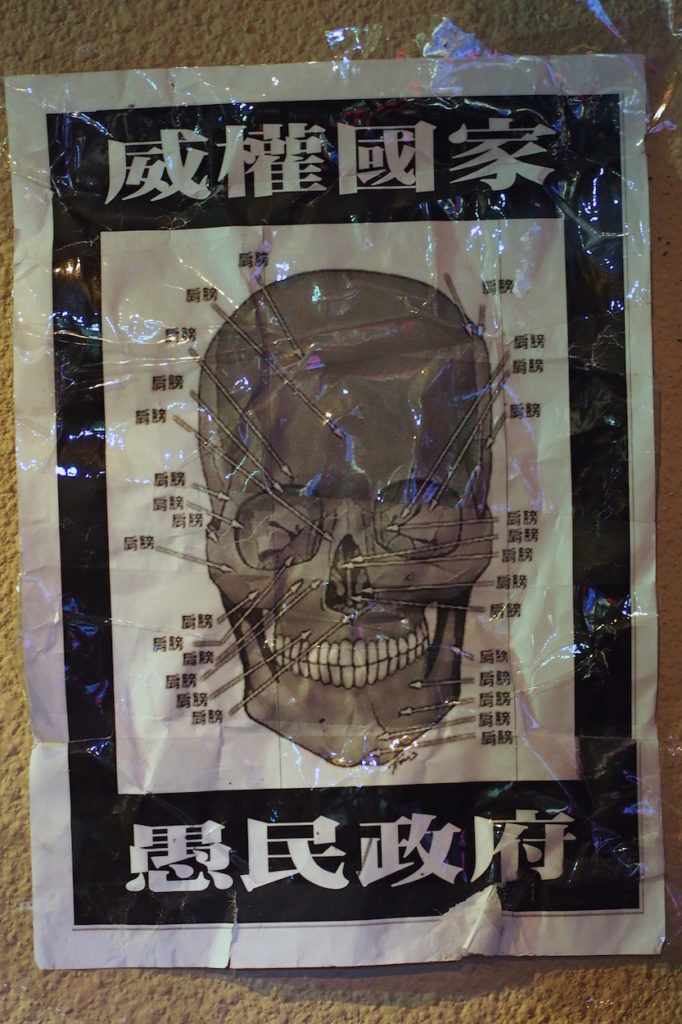Interview: Anonymous II
Anonymous is a Chinese student studying in Taiwan, who was a participant in the Sunflower Movement. The following interview was conducted by e-mail after a personal meeting in December 2017.
Brian Hioe: How did you begin to participate in Taiwanese social movements? What were the causes you participated in?
Anonymous: Because I often participated in pro-Tibetan activities, I entered Taiwan’s social movement circles. The reason for this was because I believe in democracy and even identify with Taiwanese independence.
Brian Hioe: What were you doing during the Sunflower Movement? Why did you participate?
Anonymous: I came to know social movement participants from my participation in the anti-media monopoly movement in the previous two years, and I had been following such activities before and after the formation of the Black island Youth, so my participation wasn’t anything new. I spent my time outside observing where there was a lot of people, and participated in some smaller clashes, and helping to eat some lunch boxes. [Laughs]
Because of my background, I couldn’t participate too deeply. I would remember that people of my parent’s generation participated in Tiananmen Square, and the victories of Taiwanese social movements led me to identify with Taiwan more and more.

Photo credit: Abby Chen/Flickr/CC
Brian Hioe: Did you sometimes disagree with the decisions made by the central leadership of the Sunflower Movement? How so and in what way?
Anonymous: I opposed cutting things off then during the Executive Yuan incident, but I believe that it was because they didn’t understand things within the Legislative Yuan.
Brian Hioe: How did you come to develop a supportive view of Taiwanese social movements, particularly coming from your background as a Chinese student studying in Taiwan?
Anonymous: In China, between my hometown and the big city, I observed discrimination and economic disparity, and this led me to identify with the the self-determination movement between different places. Because I support Taiwanese independence, I came to learn about social movement issues from friends in the Taiwanese independence movement, and came to participate on the basis of believing in ideals regarding equality and ideals.
Brian Hioe: How were you treated in the Sunflower Movement by Taiwanese students? Were you ever treated differently?
Anonymous: Because of my identity, I was welcomed even more, although I was a bit on guard. Nevertheless, I was a bit worried because of the situation, and I was careful.
Brian Hioe: How did you understand the movement’s relation to the KMT and to China? Was the movement an anti-China movement? An anti-KMT movement? Both? Neither? Similarly, was the movement an anti-free trade movement?
Anonymous: Although the Sunflower Movement was more a product of the KMT attempting to sell of China and the influence of the Chinese government was a bit more indirect. Opposing China is also to oppose the KMT. The right to negotiate trade agreements was monopolized by the KMT, so this should count as a black box?

Photo credit: Charlie Chang/Flickr/CC
Brian Hioe: How would you describe the political views social movements in Taiwan stand for? For example, Taiwanese political activists tend to stand for progressive views on a number of issues ranging from capital punishment to gay marriage.
Anonymous: Left independence. I feel that this is a form of identifying with the core alues of liberalism and strongly pushing for progressive change, and opposing conservatives values or what is opposed to human rights.
Brian Hioe: What are social movement activists such as yourself doing now, three years later? Your friends?
Anonymous: My friends in China are still participating widely in activism, but this is a small circle. The power of the party-state is too terrifying. My friends in Taiwan are still participating in big or small political parties or have left the country to study abroad.
Brian Hioe: How do you think China looks at the Sunflower Movement? Whether with regards to the government or the Chinese people?
Anonymous: Intelligent people know that Taiwan has avoided becoming affected by China’s economic crisis. But those who have been made a fool out of believe that this is the reason for Taiwan’s economy doing poorly at present.
Brian Hioe: Do you think there could be another social movement such as the Sunflower Movement in Taiwan down the line? How so?
Anonymous: It’s very hard to say. It depends on the wisdom of the DPP, or perhaps its crafty schemes, you could say.
Brian Hioe: How do you feel about the movement now, three years later? Do you feel that the movement had lasting effects on Taiwanese politics? On Taiwanese identity?

Photo credit: Toomore Chiang/Flickr/CC
Anonymous: This has increased the strength of my thinking regarding anti-globalization and should be thought of in terms of global economic inequality. The influence has been quite large. Fundamentally, it has put an end to the KMT, preventing economic kidnapping and protecting Taiwanese identification.
Brian Hioe: Do you think that the Sunflower Movement could influence China in any way? The international world as a whole?
Anonymous: The decline of China’s economy has begun, with economic expansion having come to a halt. China can only use One Belt, One Road, to enter into the economy of developing nations and dictatorships. After the anti-globalization and anti-neoliberal movement is proven right, probably it will become remembered as some kind of milestone.
Brian Hioe: Do you think that there is any room for collaboration between Taiwanese and Chinese social movements?
Anonymous: Mutually supporting a cause, maybe. But people that identify with liberty and democracy should not oppose Taiwanese independence, so there is hope.
